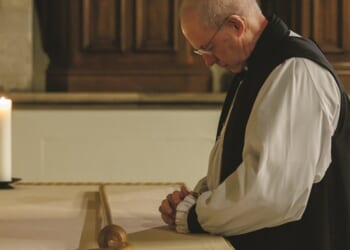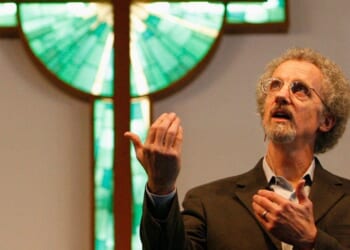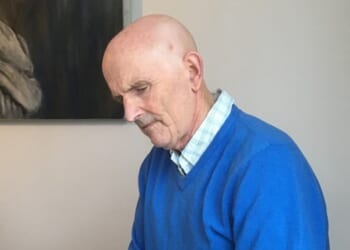COMMENT about the nomination of the Bishop of London as the next Archbishop of Canterbury has focused, above all, on her being the first ever woman to hold the office. This is, of course, unprecedented — and was even just a few years ago unimaginable. As The Times put it, the nomination of Bishop Mullally heralds “the decisive shattering of a stained-glass ceiling”. Many Anglicans — both women and men — will be celebrating this moment as a definitive milestone in history. At the same time, this nomination is unsurprising: there was understood to be considerable pressure on the CNC to name a woman for Canterbury, and to elevate the holder of the third most senior episcopal see in the Church of England to the first is hardly radical.
But this is surely no tokenism. After more than seven years spent overseeing a large and polarised diocese, Bishop Mullally is eminently well qualified to navigate her way through the complexities presented by the Primacy. She presents as the ultimate safe pair of hands. Shaped at least in part by her work as a nurse — but even more so as a civil servant — she is known to be practical, pastoral, and someone who understands process. Hers was the name that, once published, immediately appeared to be the obvious answer in the game of “Guess Who?” which has been played out since Archbishop Welby’s resignation last year. Cynics may observe that women are all too often sent in to clear up the mess left by their male predecessors. Others may fear that, having been associated with the upper echelons of the Church of England for the past decade, the Archbishop-designate is too close to the institution to bring about the necessary reform in the light of the fallout from the Makin review — not to mention the other frequently mentioned challenges of falling church attendance, shrinking vocations, and pressure on diocesan and parish finances. She acknowledged this argument on Friday while swiftly rejecting it. As she told the Church Times, “Some would say that I’m very different.”
How this difference will play out is a question for the future, but it hints at a certain determination in the Archbishop-designate to plough her own path. Let us not forget that she looked profoundly uncomfortable when Archbishop Welby made his tone-deaf valedictory speech in the House of Lords. Loyalty to her predecessor did not make her impervious to the impact of his words. In her address in Canterbury on Friday, Bishop Mullally emphasised that her vocation had been shaped by washing feet, as a nurse before she ever felt a calling to the priesthood. It was acts of kindness and love which brought healing, she said. And she was not in any doubt about the scale of the task that lies ahead: “You don’t just get trust on the day you come into office or pre-office. You have to develop it.” It is to be hoped that the Church now honours her in this calling and allows her to flourish in her new ministry.

















